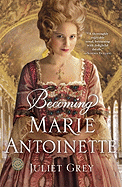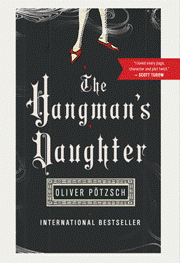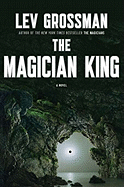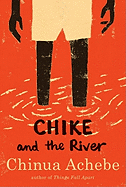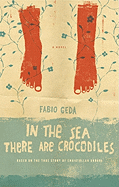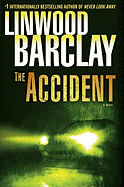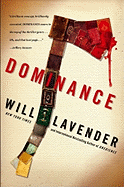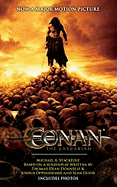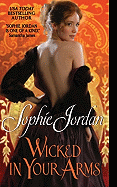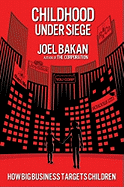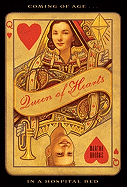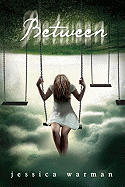 Deborah Lawrenson would like to correct a few misconceptions about her newly released novel, The Lantern (Harper).
Deborah Lawrenson would like to correct a few misconceptions about her newly released novel, The Lantern (Harper).
"I know the book has been seen as a gothic thriller," Lawrenson said, speaking from her second home in France's Luberon, the region of Provence in which this book takes place. "It's not a thriller. It's far too slow!"
Lawrenson described her latest book, which concerns a British husband and wife living in relative expatriate isolation: "It's much more subtle than that. I might call it 'romantic suspense,' except that I think of it more as psychological suspense. It's slower than a thriller, dreamier than a thriller, and also more realistic. I feel a bit worried that people will expect full-throttle murder and ghosts and such--and that's not my book!"
Characters Eve and Dom are reserved, and are hiding feelings and worries from each other. Their French home is full of sensory pleasures, from scents to tastes to textures, yet Eve becomes increasingly worried that Dom is keeping terrible secrets from her. Lawrenson's inspiration? The classic tale Rebecca by Daphne du Maurier, in which another young wife turns suspicious of her older, troubled husband.
"It's a great story, one that almost puts fingers in the mind. I've read it five or six times since I was a teenager," Lawrenson said. " What appeals to me is the quality of the writing. Du Maurier starts dreamily and then allows her plot to unfold. Not only does that appeal to me; it's something I quite happily lapse into myself."
Another element that The Lantern shares with Rebecca is a different sort of heroine. "Some people think Eve isn't a very modern heroine because she's so trusting in her marriage to a man whose history is somewhat obscure, who whisks her away to such a remote place. But I don't think of Eve as docile and subservient. There are women--men, too, but particularly women, I think--who find themselves in a situation like this and don't move on from it. "
Lawerenson says that the key to Eve's situation is that she's a bookworm. "She's not nearly as confident as she pretended to be when she took up with Dom. She's borrowed a certain amount of sophistication and she can't believe her luck in snagging such a handsome, accomplished man--but she doesn't have the experience, in the end, to confront him about his past."
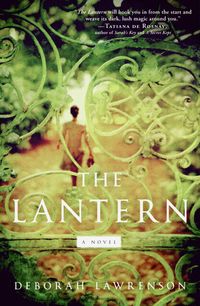 This disconnect between spouses is, Lawrenson maintains, what brings her novel back to Rebecca. "What does Eve do when she feels slightly adrift? She retreats into her comfort zone, her books. The secondhand gothic overtones in her favorite books, from du Maurier to the Brontes, forms another kind of haunting. It skews her thinking about what is really going on. Like Rebecca, the emotional power that books have over Eve is the kind of effect that these books have had on millions of women."
This disconnect between spouses is, Lawrenson maintains, what brings her novel back to Rebecca. "What does Eve do when she feels slightly adrift? She retreats into her comfort zone, her books. The secondhand gothic overtones in her favorite books, from du Maurier to the Brontes, forms another kind of haunting. It skews her thinking about what is really going on. Like Rebecca, the emotional power that books have over Eve is the kind of effect that these books have had on millions of women."
Deborah Lawrenson's name is new to American readers, but she's published four novels in her native England, where she worked as a journalist. "When I started writing, I fell into the trap of writing about 'what you know,' and pushed out two funny, lightly satirical books about working on newspapers."
Unfortunately, while those two books did fairly well, the author's third, a "black comedy," didn't. "It was a combo of its not being a great book and my publishers being sold and the new owners dropping half of the list." Lawrenson laughed heartily. "I think they probably would have sold more copies if they'd simply dropped a couple of cases of the book from the top of Random House!"
"The first three books would have been better off in a drawer, but I learned how to write a book," Lawrenson said. "It just wasn't the kind of book I wanted to write! Finally, I sat down to write that book--and couldn't get my agent or any other to sell it. They couldn't figure out if it were a commercial book or a literary book. Finally, I got so cross I published it myself."
Lawrenson did a very good job with The Art of Falling--so good that Random House bought the rights and sold it well, which led to the deal for The Lantern here in the U.S. However, she wants anyone with authorly ambitions to hear her words on another misconception: that of instant success through self-publishing.
"There was a big difference with my own self-publishing efforts, you see," she explained. "I had been published three times already, and I knew in my heart that the book I self-published was a better book than those first three. I knew what to do. There's a great deal of information out there, but there's still no substitute for experience." --Bethanne Patrick
Portrait of the Artist: Deborah Lawrenson



 Deborah Lawrenson would like to correct a few misconceptions about her newly released novel, The Lantern (Harper).
Deborah Lawrenson would like to correct a few misconceptions about her newly released novel, The Lantern (Harper). This disconnect between spouses is, Lawrenson maintains, what brings her novel back to Rebecca. "What does Eve do when she feels slightly adrift? She retreats into her comfort zone, her books. The secondhand gothic overtones in her favorite books, from du Maurier to the Brontes, forms another kind of haunting. It skews her thinking about what is really going on. Like Rebecca, the emotional power that books have over Eve is the kind of effect that these books have had on millions of women."
This disconnect between spouses is, Lawrenson maintains, what brings her novel back to Rebecca. "What does Eve do when she feels slightly adrift? She retreats into her comfort zone, her books. The secondhand gothic overtones in her favorite books, from du Maurier to the Brontes, forms another kind of haunting. It skews her thinking about what is really going on. Like Rebecca, the emotional power that books have over Eve is the kind of effect that these books have had on millions of women."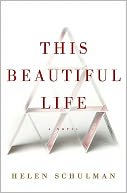 Helen Schulman's This Beautiful Life is a moving novel about how the events of a single night change a family forever. When 15-year-old Jake Bergamot becomes the catalyst for a younger schoolmate's sexually explicit video going viral, the choices he makes affect the choices that his parents make--and soon the carefully constructed "beautiful life" that the Bergamots have constructed is in disarray (there's a house of cards on the book jacket in case you need any clues about the outcome).
Helen Schulman's This Beautiful Life is a moving novel about how the events of a single night change a family forever. When 15-year-old Jake Bergamot becomes the catalyst for a younger schoolmate's sexually explicit video going viral, the choices he makes affect the choices that his parents make--and soon the carefully constructed "beautiful life" that the Bergamots have constructed is in disarray (there's a house of cards on the book jacket in case you need any clues about the outcome).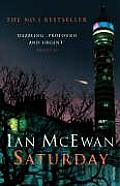 Saturday by Ian McEwan takes place in London on February 15, 2003--a post 9/11 day whose ordinariness has been forever shifted by global terror. A middle-aged neurosurgeon named Henry Perowne is woken before dawn by the sight of a fiery plane heading towards Heathrow Airport. While Henry's thoughts turn to terrorism, the events of his day show that the unease affecting First World countries can be more damaging in some ways than death and destruction.
Saturday by Ian McEwan takes place in London on February 15, 2003--a post 9/11 day whose ordinariness has been forever shifted by global terror. A middle-aged neurosurgeon named Henry Perowne is woken before dawn by the sight of a fiery plane heading towards Heathrow Airport. While Henry's thoughts turn to terrorism, the events of his day show that the unease affecting First World countries can be more damaging in some ways than death and destruction.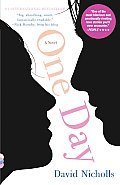 One Day by David Nicholls might be a cheat--because while the action is confined to one day, it unfolds on that same day over a number of years. However, we're including it here because it is a clever and different way of looking at how 24 hours unfolds for humans. Dex and Emma meet at university in 1988, and over the ensuing 20 years we see them each July 15--sometimes together, sometimes not. No spoilers, here, but there is a major motion picture out in theaters now....
One Day by David Nicholls might be a cheat--because while the action is confined to one day, it unfolds on that same day over a number of years. However, we're including it here because it is a clever and different way of looking at how 24 hours unfolds for humans. Dex and Emma meet at university in 1988, and over the ensuing 20 years we see them each July 15--sometimes together, sometimes not. No spoilers, here, but there is a major motion picture out in theaters now....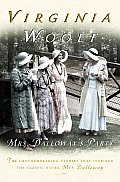 Mrs. Dalloway by Virginia Woolf is a dreamy novel about the morning-to-evening 1920s London peregrinations of an upperclass chatelaine preparing for a dinner party. Clarissa Dalloway begins the day gazing at a skywriting plane--a scene that McEwan paid homage to in the aforementioned Saturday. If that novel primarily deals with world events through the lens of one man's actions, Woolf's deals with gender roles and the post-World War I Western world's new landscape.
Mrs. Dalloway by Virginia Woolf is a dreamy novel about the morning-to-evening 1920s London peregrinations of an upperclass chatelaine preparing for a dinner party. Clarissa Dalloway begins the day gazing at a skywriting plane--a scene that McEwan paid homage to in the aforementioned Saturday. If that novel primarily deals with world events through the lens of one man's actions, Woolf's deals with gender roles and the post-World War I Western world's new landscape.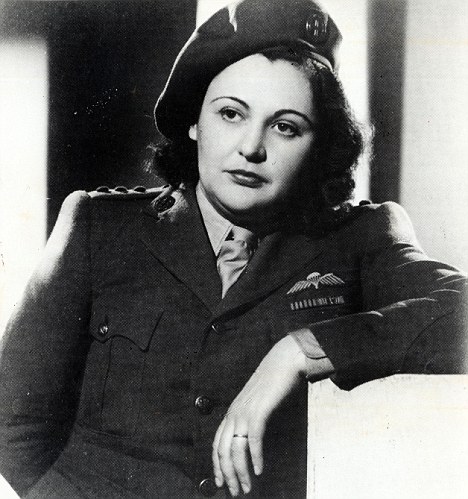 She once killed an SS guard with her bare hands--but off duty, the "White Mouse" of the Resistance movement, Nancy Wake, always wore lipstick and a glamorous coiffure.
She once killed an SS guard with her bare hands--but off duty, the "White Mouse" of the Resistance movement, Nancy Wake, always wore lipstick and a glamorous coiffure.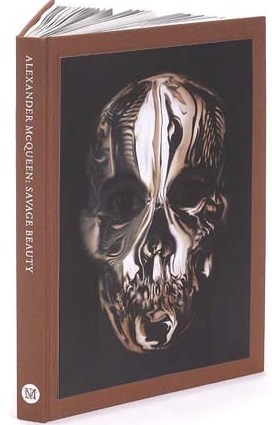 Congratulations to the Metropolitan Museum of Art, whose retrospective of work by the late fashion designer Alexander McQueen drew huge crowds--nearly 600,000 people saw the show since it opened May 4--as well as all kinds of attention for the exhibition catalogue. The museum sold more than 100,000 copies of Alexander McQueen: Savage Beauty by Andrew Bolton with contributions from Susannah Frankel and Tim Blanks at the show alone. (Distributed by Yale University Press, the $45 tome has more than 150,000 copies in print.) Elsewhere, the book has shown similar sales swagger: it has spent many weeks in the top 100 at Amazon and has been #1 in the online retailer's Arts and Photography category for much of the time since pub date. The book even warranted a mention in Sunday's New York Times Book Review's Inside the List column, a rare achievement for a museum exhibition catalogue.
Congratulations to the Metropolitan Museum of Art, whose retrospective of work by the late fashion designer Alexander McQueen drew huge crowds--nearly 600,000 people saw the show since it opened May 4--as well as all kinds of attention for the exhibition catalogue. The museum sold more than 100,000 copies of Alexander McQueen: Savage Beauty by Andrew Bolton with contributions from Susannah Frankel and Tim Blanks at the show alone. (Distributed by Yale University Press, the $45 tome has more than 150,000 copies in print.) Elsewhere, the book has shown similar sales swagger: it has spent many weeks in the top 100 at Amazon and has been #1 in the online retailer's Arts and Photography category for much of the time since pub date. The book even warranted a mention in Sunday's New York Times Book Review's Inside the List column, a rare achievement for a museum exhibition catalogue. They say truth is stranger than fiction--but
They say truth is stranger than fiction--but 
